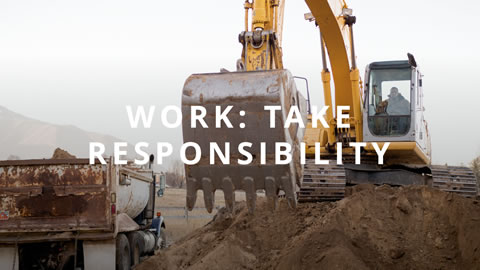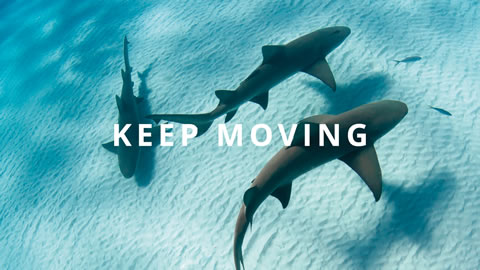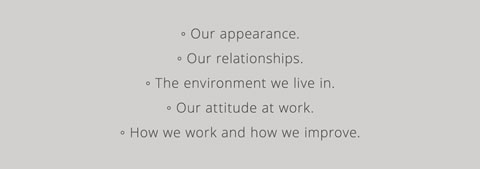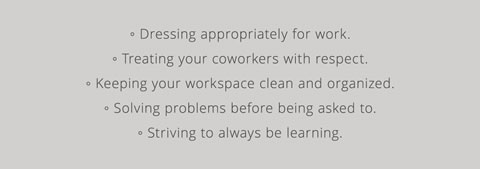
As much as we wish it might be so, the winds are not always at our back, fruit does not fall from the tree directly into our hands, and there is usually no pot of gold at the end of the rainbow. One of the first commandments God gave to Adam and Eve was the commandment to work. From their time down to our day, humans have had to labor to provide for themselves and their families.

To use a fishy analogy, some species of shark must be constantly moving in order to obtain oxygen. If they stop moving, they will die. Even though we are not sharks and we do need our rest, we must, in some sense, always remain in motion; we must take responsibility for our lives and always try to keep moving forward.

What do we need to take responsibility for? Here are some ideas:

The short answer is that our agency requires us to take responsibility for everything within our control. Here is what that might look like:

When we realize how many things are within our control and we take responsibility for them, others take notice. They begin to build trust in us. When you change your attitude from “I guess my life will always be like this” to “I can take charge of my life and be happy and successful,” you become empowered. When you add the power of faith, you will witness, unexpected miracles that fill in the gaps when you fall a little short.

Recent mortality studies (http://www.cbsnews.com/news/does-working-longer-increase-your-lifespan/) show that those who work have lower death rates than retirees—no matter the age of those at retirement. When we take personal responsibility for ourselves and our families we have a healthier and more positive outlook on life than those who are idle.
Why is this?
One reason is that living according to Heavenly Father’s plan often brings the blessings of a healthy and long life. We were born into this world to learn how to work and to act for ourselves. Taking responsibility for everything within our control is part of the process of salvation, and it has its rewards. We develop habits that lead to a stronger work ethic. We grow closer to our families when we provide for them and teach them to take responsibility as well. And because we know we are doing all we can, we feel ourselves progress, and we engage with life. Eternal progression doesn’t start when we die—it started long before we were born, and this life is part of the process. Make the most of it!


